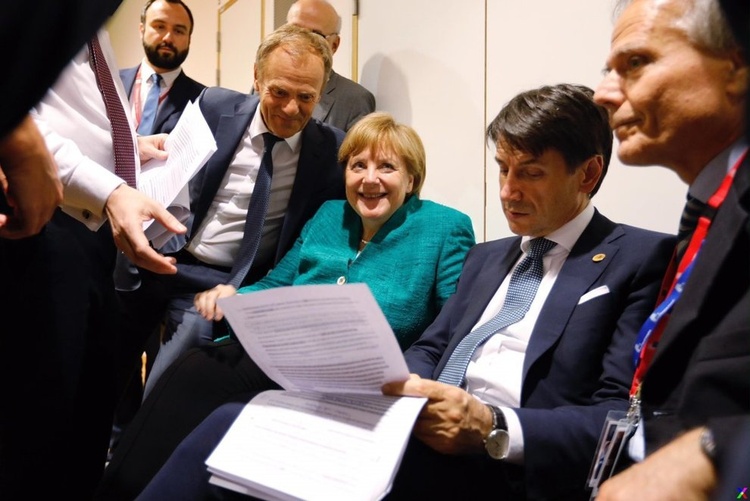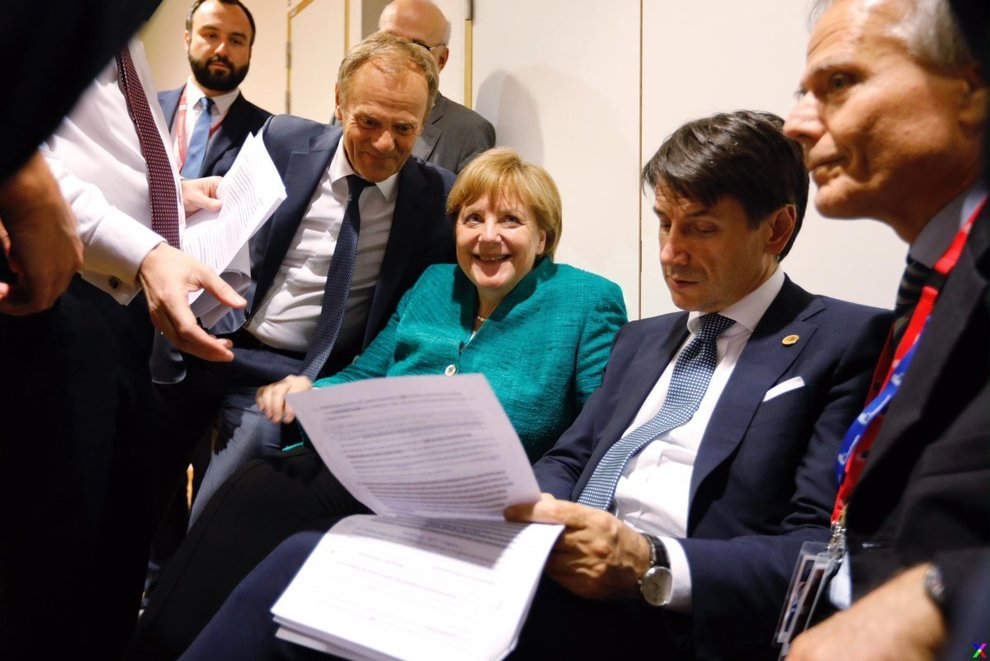However, the results achieved by Conte in Brussels have been highly criticised by the Italian media, who reported that the agreement between the 28 countries is just a bundle of compromises made to improve public opinion.
Giuseppe Conte is said to be satisfied with the result, as Italy has succeeded in “revolutionising the table” and passing important principles regarding the EU migration crisis.
However, after his first triumphant statements on Thursday night, he admitted: “If I had written the conclusions myself, I would have worded some passages in a differently.”
“But I wasn’t alone,” he added.
Meanwhile, Italian vice premier and League leader Matteo Salvini chose to see the glass half-full, commenting:
“We brought home 70 per cent of what we asked for... now we expect action.”
Chamber Speaker Roberto Fico (M5S) did not show much enthusiasm about the results and, during a visit to the refugee camp of Pozzallo, in Sicily, last Saturday, he spoke out in favour of non-profit organisations.
“They do a great job,” Fico said.
“I wouldn’t close the ports and, as the third most important member of government, I say that we must show solidarity with migrants, because theirs are dramatic stories that touch the heart.”
Fico’s words risk breaching the alliance between the League and the M5S, and they were immediately stigmatised by M5S’s, Luigi Di Maio.
“That is Fico’s personal opinion, but it is not the Movement’s or the government’s policy,” he said.
In fact, for the Italian government, the sharing of its hard-line policies against non-profits – which were reflected in the European Council’s agreement – is one of the most important goals achieved by Conte in Brussels.
“All vessels operating in the Mediterranean must respect the applicable laws and not obstruct the operations of the Libyan Coastguard,” the document signed by the 28 presidents said.
According to the agreement, “the EU will continue to stand by Italy and other frontline Member States in this respect. It will step up its support for the Sahel region, the Libyan Coastguard, coastal and Southern communities, humane reception conditions, voluntary humanitarian returns, cooperation with other countries of origin and transit, as well as voluntary resettlement.”
For Italy, though, the turning point is where the Council “reconfirms that a precondition for a functioning EU policy relies on a comprehensive approach to migration, acknowledging that the Mediterranean borders are the Eu borders and not just Italy’s”.
This means that Europe is committed to taking a new approach to migration, “based on shared or complementary actions among the Member States and to the disembarkation of those who are saved in ‘Search and Rescue’ operations”.
“In that context, the European Council calls on the Council and the Commission to swiftly explore the concept of regional disembarkation platforms, in close cooperation with relevant third countries as well as UNHCR and IOM,” the agreement said.
The document later mentioned establishing refugee centres in Member States other than just Italy, Spain and Greece, but the decision to set up the centres in these territories is up to every country to make “on a voluntary basis”.
Finally, the EU Council relaunched cooperation with African countries, budgeting for an initial fund of €500 million.
In conclusion, while the Italian government seems to be satisfied with the agreement, the Council has failed to find a shared solution regarding the relocation of refugees between the countries, still leaving the weight of the migration crisis on Italy’s shoulders.
Conte’s aim is to overhaul the Dublin Treaty and although the EU leaders claimed that “a consensus needs to be found on the Dublin Regulation to reform it, based on a balance of responsibility and solidarity”, they remained vague as to how this would be done.












